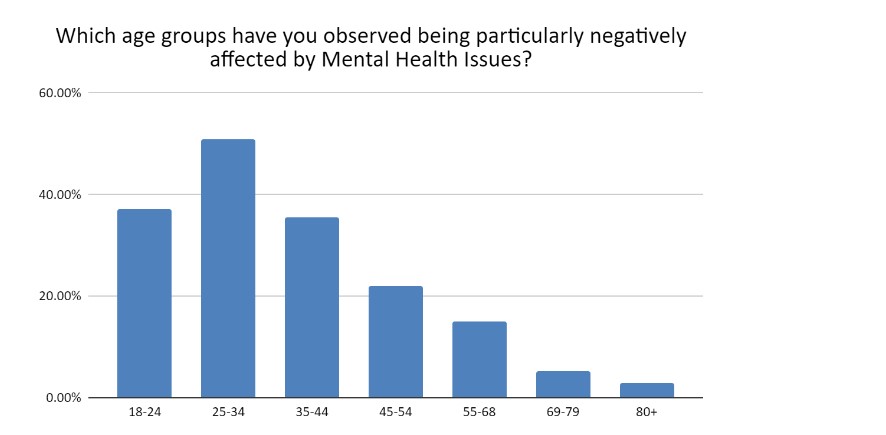Just two in five businesses are considering strengthening their mental health support programmes and making it a strategic priority in future despite soaring absences.
This is according to a Barnett Waddingham-commissioned Censuswide survey of 301 HR directors and leaders in UK companies with 20 employees or more, which found 64% of businesses have seen a rise in absenteeism due to mental health issues, with younger employees most affected.
Only 41% of these businesses have responded by increasing their spending on mental health support, while only one in four 28% said they had increased training around mental health challenges.
The research showed nearly three quarters (73%) of business leaders believed their organisations were well prepared to manage mental health concerns in their workforce, but fewer than half of these businesses were collecting comprehensive data on mental health conditions affecting their employees.
Business leaders also said they had observed mental health services being most used by younger employees, with 69% believing these services were well-used by staff aged 25 to 34.

Mental health issues were most prominently observed in this younger age group, with 51% of business leaders reporting a significant impact among employees aged 25 to 34, compared to decreasing concerns among older workers.
But few businesses were found to be actively tracking data relating to these issues. Less than half of leaders were actively collecting data on incidences of anxiety, and depression (both 44%). Slightly more (46%) collected data on stress-related disorders.
When it came to neurodiversity within the workforce, 38% of business leaders did not believe they had any incidents of cognitive conditions like dementia or Alzheimer’s, while 28% and 23% reported no incidences of learning difficulties or neurodiversity like ADHD (attention deficit hyperactivity disorder) or autism.
But looking ahead, businesses did recognise the importance of addressing the issue.
Two-fifths (40%) said they saw strengthening mental health support programmes as a key strategic priority, with 38% of businesses planning to implement such schemes, while others were adopting phased returns to work (34%) and offering greater flexibility in working arrangements (31%).
Working blind
Julia Turney, partner, platform and benefits, at Barnett Waddingham, (pictured) said: “It’s clear there is a stark clash between employers’ perceptions of their mental health support structures, and the reality.
“Business leaders are operating with naïve optimism that they have the right systems and processes in place to support their staff, but they’re working blind – they don’t have the visibility of data or metrics needed to make change.
“This is more timely than ever.” .
Turney noted that the UK’s mental health crisis was having a tangible impact on the country’s growth and productivity.
She highlighted that with a significant portion of the 2.8 million economically inactive Britons off work due to mental health concerns, this must be a priority to relieve pressure on the NHS, improve day-to-day health and wellbeing, and get the country back to work.
“Employers are a critical part of the ecosystem, and without accurate insights into workforce challenges, effective solutions are impossible,” Turney continued.
“By implementing robust data capture and analysis of time off sick, causation, and benefit impact, organisations can better understand and improve employee wellbeing for the long term.
“The buck does not stop with businesses. The Autumn Budget is an opportunity for progressive policy and proactive intervention from the government.
“Employers are leaning on private medical insurance to plaster over the cracks in the NHS’s support of mental health, financially justified as being better than dealing with absence. But medical inflation continues to increase, and costs are becoming unwieldy.
“The government could support by offering tax rebates on preventative health benefits, guidance around employee care pathways, and incentives to insurers to invest in research and innovation.”






